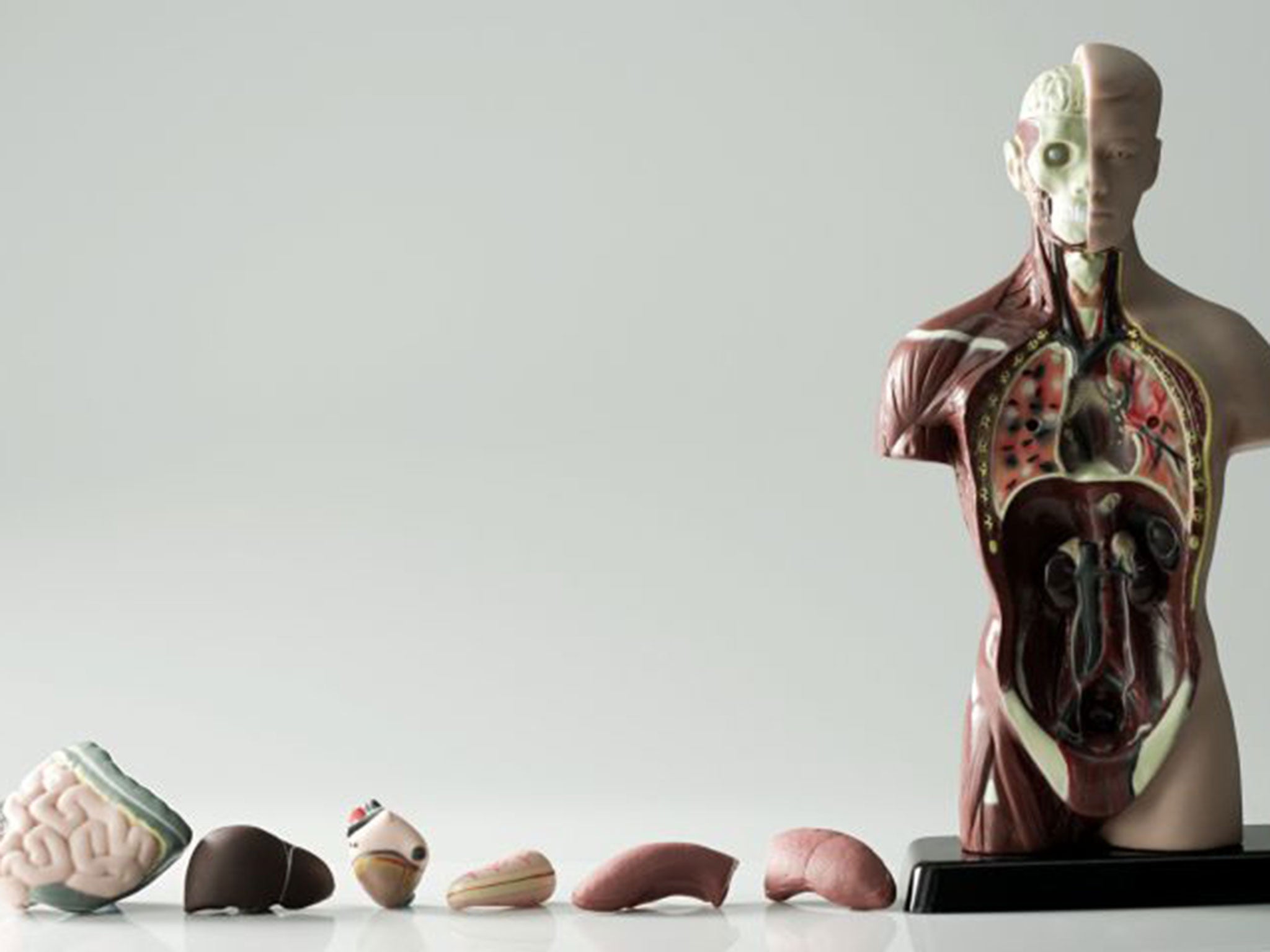Lack of anatomy training could lead to shortage of surgeons
Computer images and models have taken over from real dissection, meaning students lack confidence

Medical students are leaving university with a "worrying" lack of anatomical knowledge, top surgeons have warned, with many never having dissected a body and some qualifying as doctors without even seeing a cadaver.
Experienced surgeons also said it was "alarming" that at least two UK medical schools, Plymouth and Exeter, now have no cadaver-based teaching whatsoever in their core curriculums. There are also concerns that a lack of confidence in anatomy is putting medical graduates off applying for postgraduate surgical training. Some warn that the problem could soon result in a national shortage of surgeons.
The Royal College of Surgeons (RCS) has drawn attention to two worrying trends. For the past two years, Britain has failed to fill all of its training places for new surgeons, not for want of applicants, but because many candidates did not meet minimum standards.
Secondly, a survey of nearly 1,000 medical graduates from 13 universities, carried out by the RCS earlier this year, found that more than half cited "poor anatomy teaching at medical school" as a reason for not pursuing a career in surgery.
Vishy Mahadevan, a professor of anatomy who teaches postgraduate surgical trainees at the RCS, told The Independent on Sunday he was "very concerned" by the current status of anatomy teaching in the university curriculum.
"Whereas anatomy was once rightly regarded as essential and of crucial importance to the study of medicine, the time allocated to its study in the present day is substantially and worryingly less than in the past," he said. "We are seeing an increasing number of qualified doctors in their early surgical training who do not feel confident in their clinical abilities, and they often attribute this to an inadequate understanding of anatomy."
It was particularly alarming that there were medical schools in the UK where internal anatomy was learnt "entirely from pictures, radiological images on computer screens and plastic models", he said.
Concerns at the top of the surgical profession over the quality and scope of anatomy teaching are not new. The amount of time students spend on the subject has been gradually reduced, and many medical schools now depend on demonstrations with pre-dissected cadavers, rather than giving students hands-on experience.
One second-year student at Plymouth University Peninsula Schools of Medicine and Dentistry told The IoS that the lack of anatomy teaching at the school was "a running joke" among medics. Another said students who were "really interested" could do a special course in autopsy, but that there was no core teaching with cadavers. While the majority of UK medical students do still have training time with cadavers, the RCS said many prestigious medical schools, including Birmingham, Edinburgh, York, and Oxford use "pro-sected" specimens, which allow students to interact with body parts, but which have already been dissected by a professional.
Professor Mahadevan said this was "not an unreasonable way to learn anatomy", but that dissection was preferable and more likely to improve the students' confidence and ability. "What is important is for all these students to go away with a fairly comprehensive understanding of three-dimensional anatomy, not just the anatomy they can pick up from colourful atlases and pictures," he said. "It is far too important a subject for them to comprehend from looking at pictures and models."
Experts said that time spent on anatomy training had increasingly given way to studies in communication and other "bedside-manner" skills. While the medical profession has largely accepted the vital importance of these aspects of a doctors' work, there are concerns that, in some universities, too little time is being spent on medical know how.
Ed Fitzgerald, a registrar in general surgery in London and a past president of the Association of Surgeons in Training, said all medical students could benefit from dissection. "A lot of students themselves want cadaveric dissection, but there are a lot of reasons why it's not being offered," he said. "One of the big factors is costs and resources. The cost of having the license, of the facilities, maintaining the labs, and the cadavers themselves, is an expensive option for medical schools.
"Anatomy is very visual subject, it's difficult to get your head around and you need the benefit of dissection …. You need a good knowledge of anatomy, and if students are perceiving this as a weak spot, they're going to be less inclined to go down a surgical career path."
There was no concern about the quality of surgeons qualifying in the UK, because of the rigour and of postgraduate surgical training, he said. But there was a case for making experience of dissection a requirement for qualifying as a doctor.
Spokespeople for the medical schools at Plymouth and Exeter were not available for comment.
Join our commenting forum
Join thought-provoking conversations, follow other Independent readers and see their replies
Comments